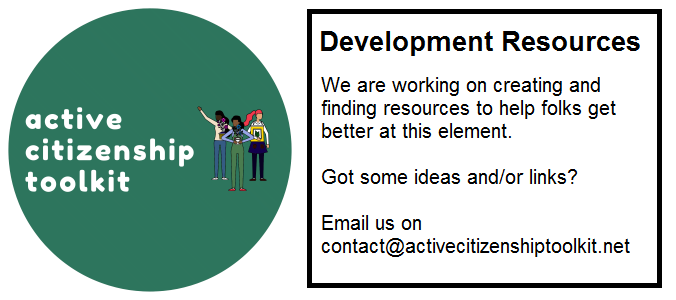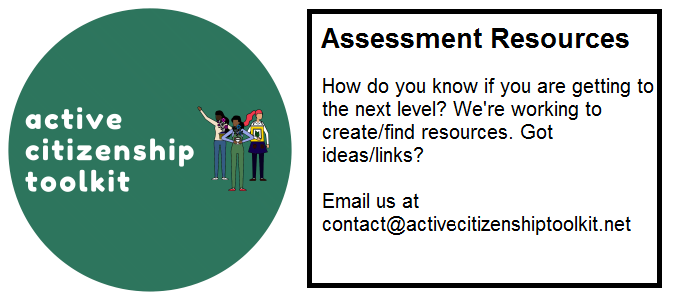Element Descriptor
The Freedom of Information Act (2000) is a key tool in the war against secrecy, complacency and appalling decision-making by policymakers and public bodies in the United Kingdom. Knowing what can be FOIAed, how, and how to avoid the basic mistakes/avoiding giving authorities easy ways not to answer is a crucial skill for active citizens. Not having it condemns you to most definitely blundering around in the dark.
Level descriptors
| Novice | Practitioner | Expert | Ninja |
|---|---|---|---|
| Has heard of the Freedom of Information Act (FOIA) and knows that it might help them get useful information for their campaigns or research. Not sure which organisations and agencies are covered by the FOIA legislation. May have submitted an FOIA request but cannot remember where they stored the response email or letter | Has submitted FoIA requests. Knows how to find out which public agencies and organisations are covered by the FOIA legislation. Knows that they can submit a FOIA request to organisations anywhere in the UK (not just where they live). Not always sure why their requests are refused or provides information that isn’t really what they wanted. Can be put off by responses that tell them that the information is not available or will be charged for. | Has learnt how to focus down their FOIA questions to give little “wriggle” room for refusal or non-answers. Has successfully obtained useful data from FoIA requests to a range of agencies. Pays no heed to attempts to discourage their requests. Has used the Internal Review process when responses initially refused or only partially answered. Has read (and understands) the reasons why some information is exempted from the FOIA legislation. Knows when (and how) to use the Environmental Information Regulations 2004 Act (EIR) to prise information out of organisations and companies not covered by the FOI legislation. Routinely shares their FOIA and EIR responses on public sites. | Knows how to successfully challenge organisations who have refused to provide information that should be available via FOIA or EIR legislation. Has successfully gone through the whole process of Internal Review and Appeals to the Information Commissioner’s Office (ICO). Plans ahead for campaign related FOIA / EIR requests taking 20 working days and allows another 20 working days for the Internal Review. Knows how to use “refusals” to provide information as part of their campaign media work. Is happy to pass on skills and experience. Enjoys learning about successful FOIA requests and challenges. Is overjoyed to receive requests to write FOIA requests at midnight ! |
Element Overview Essay
This is a draft. If something doesn’t make sense, or you see typos, or if you have further ideas, please email us on contact@activecitizenshiptoolkit.net
The causes being done badly is that people assume that officers will interpret what they’re being asked kindly and will be very keen to give the information.
Sometimes that’s true, but your safest assumption is not to believe that to be true.
The other problem is that people don’t get into the habit of doing it and seek out advice of people who’ve done it a lot before
Consequences of poorly worded FOIAs is that you’ll get no answers or deliberately vague, bad answers where you’ve offered a get out or a loophole without realising it.
So the solution again, is even if you think you are shit hot and no, you might be, there are people smarter than you. And if you run the FOIAs by them before you submit them, they’ll show you some of the loopholes that you can close. And then you can bear that in mind for future reference.
And you can do post mortems on FOIAs when you don’t get the answers you require. You realise “whoops didn’t word that one carefully enough.”
This is really bread and butter. If you’re not gonna get better at FOIAs, do us all a favour and piss off.
Development Resources

Assessment Resources

